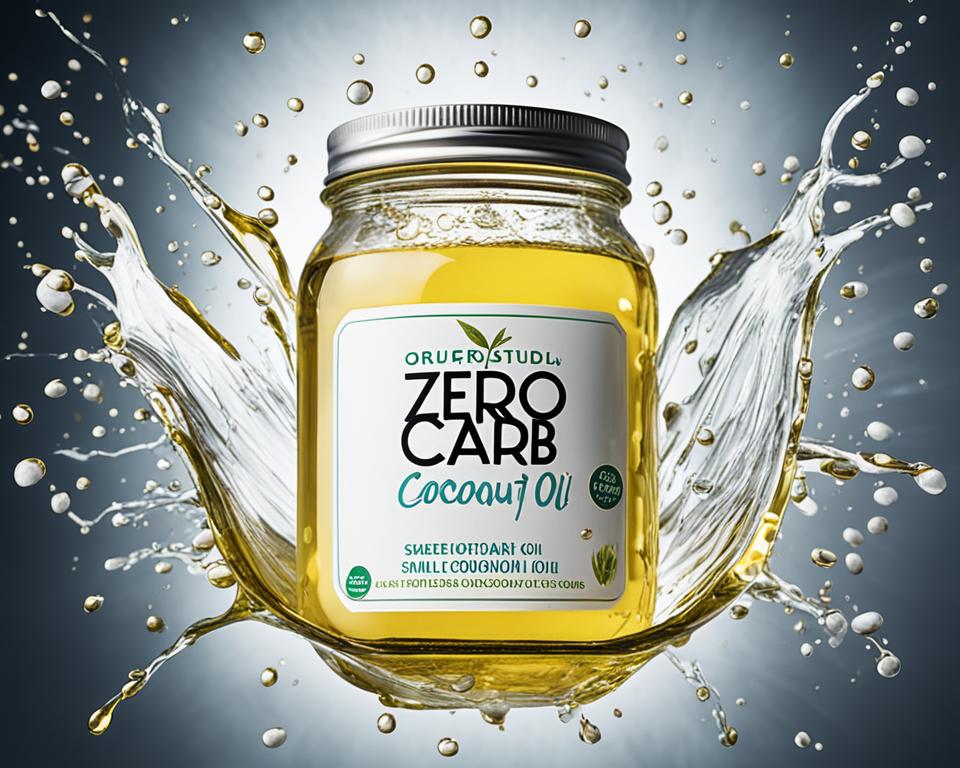A low-carb diet can have many benefits, including weight loss and improved heart health. Incorporating nutrient-dense, low-carb foods into your meals can provide satisfying options that don’t compromise on flavor or happiness. Here are some of our favorite low-carb comfort food choices based on factual data and expert recommendations.
When cravings strike, it’s natural to long for comfort foods that warm the soul. But fear not, because low-carb options can still hit the spot. From hearty vegetables to protein-packed favorites, there are plenty of delicious recipes to choose from. Whether you’re on a low-carb diet or simply looking for healthier alternatives, these ideas will help you stay on track while indulging in comforting flavors.
Key Takeaways
- Low-carb comfort food options are a great way to satisfy cravings without compromising on nutrition.
- Incorporating low-carb foods into your meals can support weight loss and improved heart health.
- Avocado, broccoli, coconut oil, eggplant, eggs, grapefruit, Greek yogurt, and green beans are all delicious low-carb options that can be incorporated into your diet.
- Experiment with these low-carb ingredients to create satisfying meals that will keep you feeling nourished and satisfied.
- Balancing your macros and focusing on fiber-rich foods can help you create guilt-free comfort food that supports your health goals.
Avocado: A Versatile and Healthy Low-Carb Option
When it comes to low-carb foods, avocados are a top choice that brings both versatility and health benefits to the table. These green powerhouses are packed with beneficial monounsaturated fats, making them a great addition to any low-carb diet. Not only do avocados offer a creamy and satisfying texture, but they also provide numerous health benefits.
One of the standout characteristics of avocados is their high content of monounsaturated fats. These healthy fats have been shown to aid in reducing bad cholesterol levels, thereby promoting heart health. Additionally, they are also linked with burning belly fat, making avocados a valuable asset for those seeking to slim down.
When it comes to carbohydrates, avocados are notably low. With only 5 grams of carbs per third of an avocado, they make for an excellent low-carb option. Whether mashed into hummus, used as a topping for apple slices, or enjoyed as a classic avocado toast, avocados provide a delicious way to incorporate healthy fats into your diet without compromising your low-carb goals.
Health Benefits of Avocados:
- High in monounsaturated fats, which support heart health
- Linked with belly fat reduction
- Low in carbohydrates, with only 5 grams per third of an avocado
“Avocados are not only delicious but also offer a range of health benefits. Their rich monounsaturated fat content makes them a valuable addition to a low-carb diet.”
So go ahead and indulge in the creamy goodness of avocados while keeping your carbohydrate intake in check. Whether as a spread, topping, or standalone snack, avocados are a versatile and nutritious addition to any low-carb meal plan.
| Avocado Nutrition Facts | Per 100g |
|---|---|
| Calories | 160 |
| Total Fat | 15g |
| Carbohydrates | 9g |
| Fiber | 7g |
| Protein | 2g |
Broccoli: A Nutrient-Dense Low-Carb Vegetable
Broccoli is a powerhouse when it comes to low-carb foods. Not only is it low in carbs, but it is also packed with essential nutrients that promote good health. With just 6 grams of carbs per cup, broccoli is a fantastic choice for those following a low-carb diet.
One of the standout features of broccoli is its high fiber content. Fiber is an important component of a healthy diet as it aids in digestion and helps maintain a feeling of fullness. With 3 grams of fiber per cup, broccoli is a great way to incorporate more fiber into your low-carb meals.
In addition to fiber, broccoli is rich in vitamins and minerals that support overall well-being. It is an excellent source of vitamin C, vitamin K, and folate, which are essential for a healthy immune system, blood clotting, and cell growth. It also provides other important nutrients such as potassium and calcium.
To bring out the best flavors in broccoli, try roasting it with avocado oil. Preheat your oven to 400 degrees Fahrenheit and toss the broccoli florets with a drizzle of avocado oil. Roast for about 20 minutes or until tender and slightly golden. This simple and delicious side dish will complement any low-carb meal.
| Nutrition Facts (Per 1 Cup of Broccoli) | |
|---|---|
| Carbohydrates | 6 grams |
| Fiber | 3 grams |
| Vitamin C | 81.2 mg |
| Vitamin K | 92.5 mcg |
| Potassium | 287 mg |
| Calcium | 42 mg |
Coconut Oil: A Versatile and Zero-Carb Cooking Oil
When it comes to low-carb cooking oils, coconut oil stands out as a top choice. Not only is it zero-carb, but it also offers a range of health benefits thanks to its high content of healthy fats known as medium-chain triglycerides (MCTs).
Coconut oil has gained popularity in recent years due to its ability to increase good cholesterol levels, reduce bad cholesterol levels, and even aid in fat burning. This makes it a fantastic option for individuals following low-carb diets and looking to optimize their health.
One of the reasons why coconut oil is valued in low-carb cooking is its versatility. It can be used in various culinary applications, from baking and broiling to sautéing and stir-frying. Its mild flavor pairs well with a wide range of ingredients, adding a subtle tropical touch to your dishes.
Discover the versatility of coconut oil with these delicious low-carb recipes:
“Coconut oil is a true game-changer in a low-carb kitchen. Its zero-carb content and presence of healthy fats make it an essential ingredient for creating flavorful and nutritious meals.”
Coconut Oil Low-Carb Recipe Ideas
Coconut oil can work wonders in a variety of low-carb recipes. Here are a few ideas to get you started:
- Add a spoonful of coconut oil to your morning coffee or tea for a rich and creamy beverage that will keep you energized throughout the day.
- Use coconut oil as a replacement for butter or vegetable oil when baking low-carb treats like cookies or muffins. It adds a delightful tropical flavor and moist texture to your creations.
- Drizzle melted coconut oil over roasted vegetables or toss them in a mixture of coconut oil, salt, and your favorite herbs for a flavorful and healthy side dish.
- Sauté shrimp or chicken in coconut oil along with garlic and spices for a quick and satisfying low-carb dinner.
Experiment with coconut oil in your cooking and discover how its medium-chain triglycerides and low-carb properties can elevate your dishes to the next level. Whether you’re whipping up a savory stir-fry or indulging in a sweet low-carb dessert, coconut oil is a versatile ingredient that adds flavor, supports your health, and enhances your low-carb lifestyle.

| Benefits of Coconut Oil | How to Use Coconut Oil in Cooking |
|---|---|
| Increase good cholesterol levels | As a replacement for butter in baking |
| Reduce bad cholesterol levels | For sautéing and stir-frying |
| Aid in fat burning | Mixed with spices for flavoring roasted vegetables |
Eggplant: A Low-Carb Veggie with Brain-Protecting Benefits
Eggplant is a nutrient-rich, low-carb vegetable that offers numerous health benefits. With less than 5 grams of carbs per cup, it is a fantastic addition to a low-carb diet plan. Not only is eggplant delicious and versatile, but it also contains an antioxidant compound called nasunin, which is known for its brain-protecting properties.
The key compound found in eggplant, nasunin, helps protect brain cells from oxidative stress. Oxidative stress is a normal part of bodily processes but can lead to inflammation and damage to brain cells over time. By including eggplant in your low-carb meal plan, you can support your brain health and potentially reduce the risk of cognitive decline.
Beyond Brain Health: Additional Benefits of Eggplant
Eggplant offers more than just brain-protecting benefits. It is a great source of fiber, which aids in digestion and promotes a feeling of fullness. Additionally, eggplant is packed with essential vitamins and minerals, including potassium, vitamin C, and vitamin K. These nutrients support various aspects of overall health, including heart health, immune function, and bone health.
To incorporate eggplant into your low-carb meal plan, try this simple and delicious recipe:
Salted Roasted Eggplant with Olive Oil
- Cut the eggplant into slices or cubes.
- Sprinkle salt over the eggplant pieces and let them sit for about 30 minutes to draw out any bitterness.
- Rinse the salt off the eggplant and pat dry with a paper towel.
- Preheat the oven to 400 degrees Fahrenheit.
- Place the eggplant on a baking sheet and drizzle with olive oil.
- Roast in the oven for 25-30 minutes or until the eggplant is tender and golden brown.
- Enjoy as a side dish or incorporate into other low-carb recipes.
The Nutritional Profile of Eggplant
To further illustrate the nutritional benefits of eggplant, here is a breakdown of its macronutrient content per 1 cup (96 grams) serving:
| Calories | Carbs | Fiber | Protein | Fat |
|---|---|---|---|---|
| 20 | 4.8 grams | 2.5 grams | 0.8 grams | 0.2 grams |
Eating eggplant in moderation can be a beneficial addition to a low-carb diet. Its low calorie and carb content make it an ideal choice for those looking to manage their weight or maintain a healthy lifestyle.
Whether you roast it, grill it, or incorporate it into your favorite low-carb recipes, eggplant is a versatile and nutritious vegetable that can provide both flavor and health benefits.
Eggs: Protein-Packed and Nutrient-Rich
Eggs are a convenient and protein-rich option for those following a low-carb diet. With just 0.6 grams of carbs per egg, they provide a whopping 6 grams of protein and are packed with essential nutrients. Whether you enjoy them as a classic hard-boiled egg for breakfast or incorporate them into various dishes, eggs are a versatile and satisfying choice.
Not only are eggs low in carbs, but they also offer a range of health benefits. They are an excellent source of high-quality protein, which can aid in building and repairing body tissues. In fact, eggs are considered a complete protein, meaning they contain all nine essential amino acids necessary for optimal health.
Eggs are also rich in choline, an essential nutrient that plays a vital role in brain function and development. Choline is involved in the production of neurotransmitters, which are responsible for transmitting signals between brain cells. Including eggs in your diet can help ensure you’re getting enough choline to support cognitive health.
Additionally, eggs are a good source of vitamins and minerals. They contain vitamin B12, which is essential for energy production and nerve function, as well as vitamin D, which is crucial for bone health. Eggs are also rich in selenium, a mineral that acts as an antioxidant and plays a role in immune function.
When buying eggs, look for options that are free-range or organic, as they tend to have higher nutrient content compared to conventionally raised eggs. Remember that eggs can be enjoyed in various ways, from omelets and frittatas to egg salads and soups. Get creative in the kitchen and experiment with different recipes to make the most of this protein-packed and nutrient-rich low-carb food.

“Eggs are a versatile and satisfying choice for those following a low-carb diet.”
Grapefruit: A Refreshing Low-Carb Citrus Fruit
Grapefruit is a delicious and refreshing low-carb citrus fruit that can be a great addition to your weight loss journey. With only 13 grams of carbs per half and its natural low sugar content, grapefruit is an excellent choice for those looking to reduce their carbohydrate intake while still satisfying their sweet cravings.
Research has suggested that grapefruit may have weight loss benefits, making it a popular choice among those striving to shed a few pounds. The fruit is believed to help control appetite, boost metabolism, and reduce insulin levels, which can promote fat burning and ultimately contribute to weight loss.
Benefits of Grapefruit for Weight Loss
Grapefruit provides several key nutrients that can support your weight loss goals. It is high in fiber, which helps you feel full and keeps hunger at bay. Additionally, grapefruit is rich in vitamin C, an antioxidant that plays a role in reducing inflammation and boosting immune function.
Furthermore, grapefruit has a high water content, making it hydrating and a great choice for those looking to increase their daily water intake. Staying hydrated can aid in digestion, support healthy metabolism, and promote overall well-being.
| Key Benefits of Grapefruit for Weight Loss | Nutritional Profile of Grapefruit |
|---|---|
|
|
One delicious way to enjoy grapefruit is by sprinkling the halves with a dash of cinnamon and drizzling them with a teaspoon of honey. This simple and nutritious dessert can be broiled for a few minutes until the honey caramelizes and the grapefruit becomes slightly golden. The warm and tangy flavor of the grapefruit pairs perfectly with the aromatic cinnamon and the sweetness of the honey, making it a guilt-free treat.
Remember, incorporating low-carb foods like grapefruit into your diet, alongside a balanced eating plan and regular exercise, can contribute to your weight loss journey and overall wellness. Enjoy the refreshing taste and numerous health benefits that grapefruit has to offer!
Greek Yogurt: High in Protein and Low in Carbs
Greek yogurt is a great low-carb option that is packed with protein and low in carbs. With approximately 6 grams of carbs and 17 grams of protein per 6-ounce container, it’s a nutritious choice for those following a low-carb diet.
Opt for Greek yogurt varieties with no added sugar to keep your carb intake minimal. You can enhance the flavor and nutritional value of Greek yogurt by adding toppings such as nuts or berries. Not only do these additions provide extra taste and texture, but they also contribute to a calcium-packed and satisfying breakfast option.
Greek yogurt is not only a delicious addition to your meals, but it also offers several health benefits. Rich in protein, it helps promote satiety and can aid in weight management. Additionally, Greek yogurt is an excellent source of calcium, which supports strong bones and teeth.
If you prefer a thicker and creamier texture, Greek yogurt is the perfect choice. Its strained nature removes excess whey, resulting in a denser consistency. This makes it a versatile ingredient that can be used in a variety of recipes, such as smoothies, dips, or even as a substitute for sour cream in savory dishes.
Benefits of Greek Yogurt:
- High in protein, which aids in satiety and weight management
- Low in carbs, making it suitable for a low-carb diet
- Rich in calcium for strong bones and teeth
- Versatile ingredient for various recipes and substitutions
Try incorporating Greek yogurt into your daily meals and enjoy its creamy texture, high protein content, and low-carb nature. Start your day with a delicious Greek yogurt bowl topped with your favorite nuts and fruits, or include it as a creamy base in your favorite smoothie recipe.
“Greek yogurt is not only a tasty and satisfying low-carb option but also provides a good amount of protein and calcium, making it an excellent addition to a balanced diet.” – Nutritionist Lisa Adams
| Calories | Carbohydrates | Protein | Calcium |
|---|---|---|---|
| 120 | 6g | 17g | 200mg |
Green Beans: Fiber-Rich and Heart-Healthy
When it comes to low-carb foods, green beans are a delicious and nutritious choice. These vibrant vegetables provide just 7 grams of carbs per cup, making them an excellent option for those watching their carbohydrate intake.
What sets green beans apart is their high fiber content. Fiber is an essential nutrient that aids in digestion, promotes satiety, and helps control blood sugar levels. Incorporating fiber-rich foods like green beans into your diet can contribute to a healthy digestive system and support weight management.
Benefits of Green Beans:
- Rich in Vitamin K: Green beans are an excellent source of vitamin K, a nutrient known for its role in bone health and blood clotting. Consuming an adequate amount of vitamin K can contribute to strong bones and help prevent osteoporosis.
- Heart-Healthy: The fiber found in green beans can help reduce cholesterol levels and lower the risk of heart disease. Additionally, their low-carb content makes them a favorable choice for maintaining a healthy heart and managing blood pressure.
Adding green beans to your meals is easy and versatile. They can be steamed, sautéed, roasted, or added to stir-fries and salads. Their crisp texture and mild flavor make them a perfect companion to other low-carb ingredients.
For a nutrient-dense lunch option, consider combining steamed green beans with flavorsome pesto and a soft-boiled egg or grilled chicken. This satisfying meal will provide you with a boost of fiber, vitamins, and heart-healthy nutrients.
Remember, green beans are not only low in carbs but also packed with essential nutrients that support overall health and well-being. So, why not make them a regular addition to your low-carb meal plans?
Conclusion: Balance Your Macros with Delicious and Satisfying Low-Carb Meals
Incorporating low-carb foods into your meals can offer a range of benefits, from weight loss to improved heart health. By exploring the wide variety of low-carb comfort food options available, you can satisfy your cravings without compromising your nutritional goals.
When it comes to creating delicious and satisfying low-carb meals, it’s important to focus on balancing your macros and incorporating fiber-rich foods. This will not only provide you with the necessary nutrients but also help keep you feeling full and satisfied.
Whether you’re looking for low-carb meal ideas, low-carb substitutes for cravings, or guilt-free comfort food, there are plenty of options available. From incorporating nutrient-dense vegetables like broccoli and green beans to enjoying protein-packed Greek yogurt or eggs, you can create a wide variety of low-carb meals that nourish your body while satisfying your taste buds.
Remember, achieving a low-carb lifestyle doesn’t mean sacrificing flavor or happiness. With the right choices and creativity in the kitchen, you can enjoy guilt-free comfort food that supports your health and well-being.
FAQ
Can low-carb comfort food options satisfy cravings?
Yes, low-carb comfort food options can satisfy cravings while still being healthy. Incorporating nutrient-dense, low-carb foods into your meals can provide satisfying options that don’t compromise on flavor or happiness.
What are some low-carb comfort food choices?
Some low-carb comfort food choices include avocado, broccoli, coconut oil, eggplant, eggs, grapefruit, Greek yogurt, and green beans. These foods are low in carbs, packed with nutrients, and can be used in a variety of dishes.
How can avocado be used in low-carb dishes?
Avocado can be mashed into hummus, used as a topping for apple slices, or enjoyed as classic avocado toast. With only 5 grams of carbs per third of an avocado, it is a versatile and healthy low-carb option.
What are the nutritional benefits of broccoli?
Broccoli is a low-carb vegetable that is packed with nutrients. With just 6 grams of carbs per cup, it provides 3 grams of fiber and is rich in vitamins and other essential nutrients. Roasting broccoli with avocado oil at 400 degrees Fahrenheit makes for an easy and delicious side dish.
How can coconut oil be used in cooking?
Coconut oil is a zero-carb cooking oil that is rich in medium-chain triglycerides (MCTs), a type of healthy fat. It can be used for baking, broiling, sautéing, and more. Coconut oil can increase good cholesterol, reduce bad cholesterol, and aid in fat burning.
What are the brain-protecting benefits of eggplant?
Eggplant is a low-carb vegetable that contains less than 5 grams of carbs per cup. It is rich in nasunin, a compound that protects brain cells from oxidation. A healthy way to enjoy eggplant is by salting, roasting, and drizzling it with olive oil for a delicious side dish.
How can eggs be incorporated into low-carb meals?
What are the weight loss benefits of grapefruit?
Grapefruit is a low-carb citrus fruit with only 13 grams of carbs per half. It is lower in sugar compared to other citrus fruits and has been linked to weight loss. Sprinkle grapefruit halves with cinnamon and honey before broiling for a nutrient-rich and satisfying dessert.
How does Greek yogurt fit into a low-carb diet?
Greek yogurt is a low-carb food that is high in protein, with approximately 6 grams of carbs and 17 grams of protein per 6-ounce container. Opt for Greek yogurt with no added sugar and add nuts or berries for a calcium-packed and satisfying breakfast option.
How can green beans contribute to a low-carb diet?
Green beans are a low-carb vegetable that provides 7 grams of carbs per cup. They are rich in fiber and vitamin K, which contributes to bone health, healthy blood clotting, and can help prevent heart disease. Combine steamed green beans with pesto and a soft-boiled egg or grilled chicken for a nutrient-dense lunch.
How can I create satisfying low-carb meals?
Incorporating low-carb foods into your meals can offer a range of benefits, from weight loss to improved heart health. Experiment with the variety of low-carb comfort food options available to satisfy your cravings without compromising your nutritional goals. Balancing your macros and focusing on fiber-rich foods can help you create delicious and satisfying low-carb meals that will nourish your body and keep you feeling satisfied.





